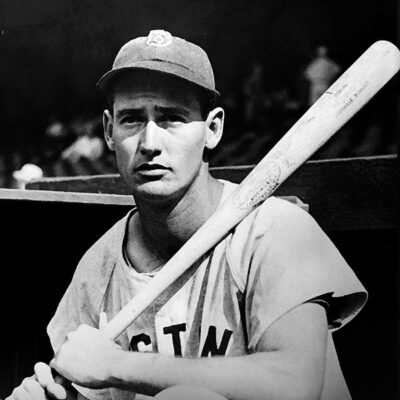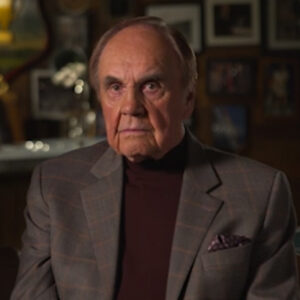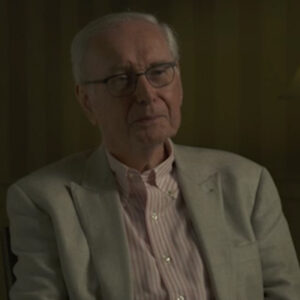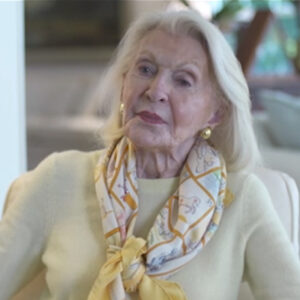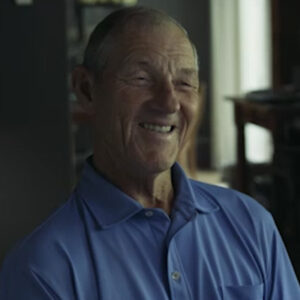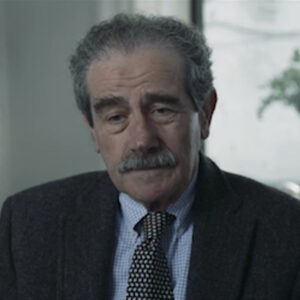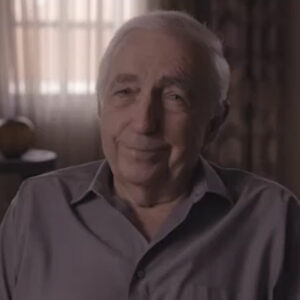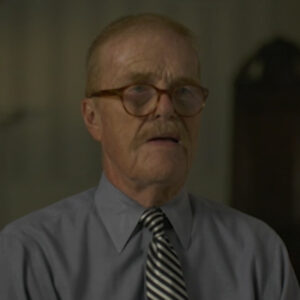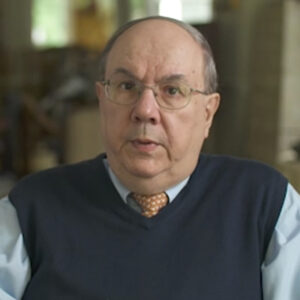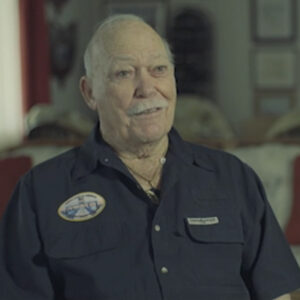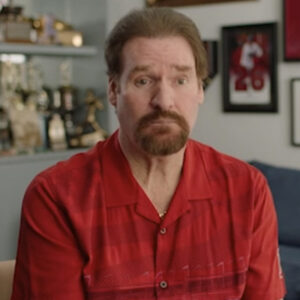Speaker 1 Jack Fisher and I understand we’re going to be talking a little bit about Ted Williams.
Speaker 2 Where and how did you grow up?
Speaker 1 I was born in a little town called Frostburg, Maryland, in western Maryland, as far west as you can go in Maryland and spent the first 12 years of my life there. And then my dad was a career man in the army and he was stationed down at that time. Camp Gordon, Georgia. It’s now Fort Gordon. So I moved to Augusta and I went through junior high and high school there.
Speaker 2 Where were you? Where did you start playing baseball?
Speaker 1 I started actually organized baseball my when I was 12 years old and Frostburg was their first year of organized Little League Baseball, played in that and then went down to Augusta and played every year down there and ever since.
Speaker 2 What did you like about baseball?
Speaker 1 I had. I thought I had a little bit of advantage, no one, I was always bigger than the people that I played against and I could throw the ball fairly hard. So that was fun.
Speaker 2 Did you jumping around a little bit, but, you know, one of the things about baseball is the cat and mouse game between batter and pitcher. Did you like that?
Speaker 1 Well, I got to know the the more you pitch as far as I didn’t answer that,
Speaker 2 it’s not, you know, and were you ready to start
Speaker 1 with the more you pitch, you learn to remember things in your mind and remember the the what batters have done against you in the past. Give you one great example in pitching against the Phillies in Shea Stadium one day and Johnny Carson got up and he hit a blue liner on a slider right down the right field line, just foul. And all of a sudden, like, bells went off in my head and said, you know. Every pitch that he has hit hard off me, you know, his base hits in the past, has been on a slider. And so and he was hitting me pretty well, so therefore I didn’t stop throwing him sliders, but the pitches that were strikes were something other than a slider and I got it got him out again. So, yeah, that’s the cat and mouse game that you play.
Speaker 2 You. Within it it back, did you often think, OK, I’ve just thrown it through it by and I’m going to try and throw a bomb again?
Speaker 1 Sometimes you throw a bomb because they’re looking for something else and you got to know the difference there. I mean, there are certain matters that you just don’t think you’re ever going to throw in by him. And I mean, like Hank Aaron, you just weren’t going to throw a fastball by Hank Aaron. So there’s no sense in challenging him in a tough situation if you’re two or three runs up. OK, fine, but not when the game is on the line.
Speaker 2 And I don’t want to jump too far into the final back there, but. But why not? So Williams said in his final at bat. I think it was the second page you threw a fastball and he broke the back. You tell me what happened.
Speaker 1 I was actually a swing and miss. I believe the first pitch was a ball just off the plate. And this was my catcher. And Gus kept going to break and pitches and change ups and sliders and everything. And I had in my mind that the wind was really blowing in from right field. And Ted had hit a fastball off of me earlier in the game to right field. And hit it, hit it well and apologize it got it out, didn’t even go to the track, so I really didn’t think that against that when he had a chance to hit it out. Basically, the home run wasn’t really in my mind because I had a two run lead. The main thing was I wasn’t going to walking, so I just wanted to get out there and challenging. And if, you know, the worst thing I wanted really was a base hit to and I looked for that same high fly ball out there. So and Gus called for curve balls and everything. And I kept shaking off. And the second pitch was a fastball. And it was pretty much right down the middle of the plate. And he swung and missed it and. Why not keep going? You know, I like I said, I didn’t think he could add it up.
Speaker 2 All right, we’re done now. Fantastic. Phil, were you a fan of baseball growing up?
Speaker 1 Oh, yes, yes. Yes, I was. I was a real fan. I can still remember when I was in high school listening to the Zidane on the game of the week, you know, and I I guess I probably picked out Bob Feller to be my hero, you know? And every time Feller was on a game that I could listen to, I really, really enjoyed that.
Speaker 2 Did you grow up? What do you think of William’s?
Speaker 1 It was just one of the great hitters, that’s all.
Speaker 2 Did you as a as a as a boy growing up, did you who did you have? I mean, other than Felter, did you. We get so invested in our favorite players. Did you feel like I’m about to die? You know, I don’t like him. I like DiMaggio and I’m like, what? Do you have any of those guys?
Speaker 1 Not that much, actually, because I had no real hero, because I was so busy myself. I mean, I played all the sports. I played football, basketball and baseball. So I never really had a day off all the time, you know, my junior high school and high school days. And it was rare, actually, that I had a chance to listen or to follow really follow the game, because with school and in sports, I was a busy person.
Speaker 2 Right. What was what was when you started your career in baseball, how did you how did that happen that you got to the majors and that go for you?
Speaker 1 I started well, I always figured that I would have a chance to at least get to get a chance to go into professional baseball when I was a senior in high school and I was very fortunate to be on a state championship baseball team. And when we played the state tournament, there were plenty of scouts in the stands. And I had an offer to or several offers to go scholarship to colleges in baseball. But the Oriole Scout said that he would like for me to come up to Baltimore and throw for Poor Richard’s. And several other Scouser around, they wanted me to come. I was actually the trip that I had planned, my mother and I. Was to go to Baltimore, go from Baltimore to Pittsburgh and go from Pittsburgh to St. Louis. Those were the three teams that we were going to go visit. And we got in to Baltimore and I got out and I and I threw for Paul Richards and Harry McCain and it’s funny, at the same time there, Milt Pappas was there and Jerry Walker was there. So all three of us were there in the same time and. So my high school coach had told me, Jack. He had played a little bit of minor league baseball himself. He said you’ve got to get at least sixteen thousand dollars. Because that’s four thousand dollars a year at the University of Georgia, that’s what it will take to pay for your college education and. So after we were done working out, went into Paul Richards office and he said, what will it take for you to sign? Oh, my coach also said you have to get a major league contract because that meant that they can only send you down to the minors for two years and then you could become a free agent after that. And. So he said, what would it take? And I said. Sixteen thousand dollars in a major league contract. Paul said, you got it. And I didn’t know what to do about it. I said, well, maybe I better go discuss it with my mother. OK, so I went back and and I said to my mother, he said he’d give me what we asked for and. She said, well, you just have to promise me that you’ll get a degree. And out of college, and if you want to go on, it’s your decision to go on into baseball, so. I. Went back and after working out again the next day and brought me into the office, he said, Tell you what, I’ll take you up for a thousand dollars to twenty thousand a major league contract. I said, I’ll take it. Oh, that was my my whole idea about getting into Pro Bowl.
Speaker 2 And Paul, Richard became your manager, right?
Speaker 1 He was a manager and general manager at the time.
Speaker 2 Was he a very strict manager or did he did he let players know, here’s your job? And or was he sort of like,
Speaker 1 no, Paul Richards was a guy that no one you respected? He was Paul really, really knew pitching, even though he was a catcher in these days. But he was a fundamentalist. You know, the fundamentals of the game he just lived upon and your. Trying to throw the ball without hurting your arm was was big with him and your mechanics. So he he was a guy that you didn’t you obviously didn’t mess around with or you, Joe, good joke around with. Now he pretty much all business.
Speaker 2 So one of the things that I think people don’t realize is Steve Balmer started the game telling me that Steve Mark,
Speaker 1 Steve Barber, well, he was my roommate and. He Steve Barber had a pretty bad start that day and in Boston. He. Then get out of the first inning. They had scored a couple runs off of him, and I believe when I come in, the bases were loaded and either no out or one out or something like that and. And I got us out of the inning. And relief. And. We got to run here, there the other, and and eventually we will end up what?
Speaker 2 Well, before we get to that, OK, you were up for it. Yeah, 15 seconds, Eddie has an idea. Not much of an idea. What, the bathroom? No, he’s is moving.
Speaker 1 OK, so we’ve got a bathroom, but we’re ready.
Speaker 2 Let me back up. OK, Steve Barbaresi. OK, what was he like as a pitcher? Yeah, great control.
Speaker 1 Steve Barber had probably as good as sinker as you’d ever want to see it through what everybody calls a heavy pitch. If you just played catch with him when when you caught the ball, it stung your hands. I mean, his ball just absolutely dove. And he is pretty much fearless. I mean, here it is in it. That’s the way that’s the way he was. I had an idea, looking back at his control, been a little bit better ball. What a reliever he could have been. But he wasn’t a bad starter either.
Speaker 2 But he was fairly wild.
Speaker 1 Yeah, that’s that’s what I say with Steve could walk quite a few guys from time to time.
Speaker 2 Now, you had pitched I know they didn’t care much about pitch count in those days. No. Can you tell me that? Because you pitched a fair amount on, I think, the Saturday before and you were not thinking you were going to start that day?
Speaker 1 No, no. I had no idea I was going to start that day. And really, that’s that’s the big change in the game today as it was back then. I mean, back then, as long as you were getting them out and you weren’t hurting your pitching, if you weren’t getting out, then you got out of the game. And I was I was getting you know, I had pretty good stuff that day.
Speaker 2 Let me ask you something. Did you have a start schedule? You were going to go to Washington next. I mean, did you think, OK, I’m pitching Friday in Washington or something?
Speaker 1 Or you just never thought about that when you went to the ballpark? Unless you’d like pitch nine innings the day before. If it wasn’t, that’s about the only time you’d say, I’m not scheduled to come in and pitch. And we always, through the second day, warmed up in the bullpen and you get warm if you want to come in and get a batter to out, they’d bring you in. So and it wasn’t that big a deal. It was normal.
Speaker 2 Great. I think because of the way I asked the question, you didn’t freeze it. You can just go back that again. Just tell me, you know, in those days you always thought you were going to pitch or something like that.
Speaker 1 Yeah. When when we got to the ballpark, unless you had pitched nine innings the day before or a long stretch today before, you’re ready to go in the ballgame. And, you know, that’s that was that was a great thing about being a pitcher back in those days, as that goes, had the chance to get in the ballgame and we went and warmed up. But always the second day after you, after you pitched, after you started. And if you got warm and they need to need you to get a batter to find, bring us in.
Speaker 2 So the night before, I didn’t realize you were roommates with Steve Marberry, and I don’t want you to make something up if this is the case, but you all everybody knew it was going to be Ted Williams last game game.
Speaker 1 Pretty much so, yes.
Speaker 2 So did Steve Barber say boy, Steve Williams last game. I’m going to page I’m going to you know, did that come up?
Speaker 1 I don’t think that really got the idea that it was going to be Ted’s last game. Really. We had no discussion over it.
Speaker 2 Did it, but you did know it was going to
Speaker 1 be Ted when it was announced? Yes, it was about Ted Williams announced that he was not going to go to Yankee Stadium.
Speaker 2 And. So was it like I’m setting you up, but was it like today when Jeter or GS is retiring and, you know, it’s like this all season long thing and 50000 fans, or was it not much of a big deal?
Speaker 1 The idea of Hilton being his last game didn’t make me feel like it was anything. Well, first of all, I didn’t think I was going to get in the game. And second of all. It really wasn’t that big a deal. OK, that’s it. Now I’ll be able to see Ted Williams come up, you know, playing his last ball game.
Speaker 2 And you faced him before.
Speaker 1 So I had a sportswriter look up my record against Ted, and he told me that he was two for 13 lifetime off of me. Yet the first time I faced him, I do remember I facing in Baltimore the first time a face to and he had a rifle double for me to right centerfield field. And apparently I had gotten him out 11 consecutive times and then he hit the home run. So he was two for 13, although he didn’t make the big leagues off of me. I mean, make the Hall of Fame off of me.
Speaker 2 So what was he like as a hitter? I mean, you know, what was what was the book on?
Speaker 1 Well, the. Number one, when when he came out and he was in the on deck circle, you could almost feel his eyes on you. He was just there and he would be just staring at you. You could feel that when he came to the plate, just the way he stood there. You knew he was a great hitter and of course, being a fairly good student of the game, I knew he was a great but by looking up his numbers tell you a real funny story about Ted Williams. When I first came up, the first year, I come up with Baltimore. Boston was the last team that we went to visit on the road, and I couldn’t wait to get to the ballpark, get my uniform on and get out there in a hurry so I could take a look at this. And, of course, you step out there and you look at that left field wall. Wow, that thing is short. And they were taking batting practice at the time. So I walked up to the batting cage up there and stand there watching them hit the ball in batting practice and all of a sudden a tap on my back here. I turned around. There’s a big tall man standing, holding his hand up, said, hi, Jack. Ted Williams, welcome to the big leagues. I said, well, thank you, thank you, Dad, and I thought that was, you know, how would Ted Williams know me? But Ted Williams, he didn’t know me, but he found out he saw a face he didn’t didn’t recognize. Find out who I was. And I thought it was great that he would come up and do something like that.
Speaker 2 That’s amazing. Grunting Damn good story. That’s fantastic. One thing you didn’t say in that story is let’s just tell it again, because it was so super. I want to go to the Ed chance. So this set the scene is 1959 is my rookie year and I’m at Fenway Park. OK, I want to hear the word Fenway Park. And what was that like to see Fenway Park for the first time. So, OK,
Speaker 1 it was nineteen fifty nine in Fenway Park when I got there. It was the last the last city that we visited after I got called to the major leagues and I wanted to really hustle and get my uniform on and hug it out. Take a look at the left field wall there. And and the Boston was taking batting practice at the time. I walked up by the batting cage and. There for a couple minutes and all of a sudden someone tapped me on the shoulder and turned around, there’s a big tall guy and he had his hand out and he said, Hi, Jack, welcome to the big leagues. And it was Ted, of course, you know. And I said, well, thank you, Ted. And I just thought that was great, that he would do something like that. No more discussion other than that.
Speaker 2 That is great. Now, he among fans and sportswriters and stuff, you mean had such a tough reputation, but from that story, it seems like.
Speaker 1 I don’t think you’ll find Ted Williams. If you talk to other ballplayers, very few people will have a bad thing to say about Ted. He was he was great to the other ballplayers and and his ball, even his teammates, like I have a good friend, Tracy Stallard, that played with Boston. And he thought Ted was just just a super guy. Great, great.
Speaker 2 In pitching to him, who were, you know, were there other players who you got that same feeling? I mean, you pitched a number of years in the major leagues. Who were the who were the players who gave you that feeling, who you would compare it to?
Speaker 1 Well, I pitched against Stan Musial. He certainly was a pretty good hitter and in fact, I know what his record is off of me. He was three for four lifetime, but he only hit one ball good Stan. And he got a couple of bleeders off of me. But of course, Hank Aaron was one of the all time great hitters. My toughest biter of all was Willie Stargell, and I made it seemed like every time I cut my arm, Willie hit it over a building someplace. So I kind of pushed around him a lot towards the end.
Speaker 2 When you’re in a man like that, you have like someone like 10 or Willie Stargell comes out. Are you afraid or is it more like,
Speaker 1 oh, when when a batter when you get that challenge, if you don’t have it in your gut, that man, you’re looking forward to this. It’s. No, no, no. I’m going to back off. No, you want to go get him out. But I think that that’s a built in. If you don’t have that, maybe you shouldn’t be out there pitching. It got to the point where Stargirl hit me so hard that finally, OK, I gave in to him and I figured I’d put him on first base rather than let him circle the bases and walking rather than let him beat me.
Speaker 2 Yeah, I guess that’s why I make it so. All right. They say and liked to quote that hitting a baseball is the hardest thing to do in sports. Can you tell me about that? Do you agree with that?
Speaker 1 Yeah. Ted says that hitting a baseball, I think, was the hardest thing to do in any sport. And he had that conversation on his understand with Sam Snead one time and. Snead says he had bears in golf, the ball sitting there still, and that’s all you have to do, is hit something that’s standing still and. Snead said, yeah, but we’ve got to play our foul balls, but, yeah, I, I know I tried to hit it is a tough thing to do.
Speaker 2 So, all right, so. Can you when you think back to that day, setting the stage Wednesday, September 28. Nineteen sixty. You go to the ball park, you don’t think you’re going to pitch, what kind of a day was it that.
Speaker 1 That day, going to the ballpark, it was cold, dreary. Hardly any sun out, overcast. It was it was a terrible not a good day for baseball.
Speaker 2 And it’s the end of the season, you guys are out of it, they’re out of it. Do you feel like I mean, what is that like when you’re playing a game in late September that has no bearing on the standings?
Speaker 1 It’s still a game, it’s still a game you want to win, there’s no I don’t think I would feel any different going out. Pitching the last game for for the pennant would be any different than when I stepped on the mound. I wanted to win the ball game.
Speaker 2 So Steve Barber gets in trouble, how does it work in those days? Are you. Are you in the bullpen? Are you going to
Speaker 1 when when Steve got in trouble? I was in the bullpen and the phone rang and I was the person I called on to get up.
Speaker 2 So you come in the game garden with where there are a lot of people in the stands,
Speaker 1 I’d say this stands I’m going to guess they were probably about three quarters filled.
Speaker 2 I’ll tell you, there were 10000 people in the stadium is.
Speaker 1 Seemed like there’s more than that.
Speaker 2 Yeah, I mean, there certainly have been a hundred thousand people who said they were there.
Speaker 1 Yeah, yeah. Sure.
Speaker 2 But. So so you come in the game, you hold off, you know, you hold off the Red Sox, you get the lead. Talk me through the game again as if we didn’t already do it right at the beginning of the interview.
Speaker 1 Well, the whole idea is to go in and obviously get out, you know, keep them from scoring any more runs till we can catch up, get the lead, which we did. I believe we get up four to two and. And. The. Got to that night thing. And they had the bases loaded, nobody out. And the difference in a game like today, now, you know, I’m still in the ball game. I’ve come in long, man, and relief in the first inning and I’m still in the ball game, which is fine by me. I mean, I still throw on fine. And they had scratched or run off on me, you’ll have to help me. There was an eighth in England.
Speaker 2 Ted was up to 10 hits the home run.
Speaker 1 Oh, that’s right. Let’s get to
Speaker 2 the ninth inning because it’s fascinating. You know why? Why today? You cannot understand why this guy came in the first
Speaker 1 inning in long, right.
Speaker 2 The game, he gets in trouble. The ninth inning, they lean
Speaker 1 mean, but that’s right. Ted hit the home run in the eighth inning and then in the ninth inning, they get the bases loaded. Nobody out. And I think. I believe that the hitter was Willie Tazz, but I’m going to guess and say that that was it. And with one out. He hits a two hopper down to Brooks Robinson at third base. Brooks gets it goes over to second and Billy Clough’s was playing second base for us, he got the ball, hung up a little bit in his webbing there to first base over. The first baseman said up into the stands to run score, we lose the ball game. Had we have had we turn that double play, I would have been the happiest guy in the world to have, you know, won the game and. Same time, giving up a home run, no big deal.
Speaker 2 It’s amazing to me that you remember the double play and all you remember that crystal clear almost as well as the home run, right? The. It really is about winning.
Speaker 1 That’s the name of the game
Speaker 2 he’s in it, as I said,
Speaker 1 winning is the name of the game.
Speaker 2 So for you being this figure in baseball history now. I mean, how do you feel about.
Speaker 1 Being in baseball history means to me that someone had to be there, just happened to be made to be there on a couple of occasions, maybe say three occasions, probably my three biggest that I’m known for is Roger Maris, 68, and the first pitch at Shea Stadium and Williams last time at bat. So somebody had to do it one on me.
Speaker 2 Yeah, can you just tell me, you know. In your own words. Something about, again, what you said before that that you’d be perfectly happy giving up the Williams home run if you had won the game, but we went and fumbled away the game in the.
Speaker 1 Well, I’m not going to, you know, throw blame on on the other players or anything, you know, I just wish, you know, the idea is always to win the game. You get out there and we had the lead and and we didn’t hold it in the ninth inning. You know, there’s nothing more to say about it.
Speaker 2 But if you had, you’d be
Speaker 1 perfectly had been very, very happy. No one because of the win.
Speaker 2 Great. So backing up to the eighth inning at this point, you’re up by two runs and the fans, even though there are only 10000 of them, they’re all on their feet applauding because they know this is hard for dad. Can you tell me talk me through. What’s that like? You know, being in an enemy stadium and they’re all applauding. And here’s the great hero and what’s going to happen?
Speaker 1 Well, it was you know, I learned more and more to to accept that when you get in the opposition ballpark, people are going to be screaming at you and yelling at you and you pretty much can, you know, just avoid that. It doesn’t really affect you all that much. But I knew at the time that he came up that it probably was going to be his last at bat. And he hit the home run and I watched him going around the bases and come in and he went and. Of course, people are still cheering and asking for a curtain call and this, that and the other, and so I kind of fumbled around on my own back, rather, Rozenberg took my time giving them a chance. I look in the dugout there and he waved to me, go ahead and pitch. I’m not going back up, so. Went on and finished the.
Speaker 2 That’s right. When he hit it, did you know it was gone?
Speaker 1 I mean, do you know I knew it pretty well, but like when Ted hit the ball for the home run, I knew he hit it well, but the wind was blowing so hard, I didn’t think it would go out. I really didn’t. But it did.
Speaker 2 Right. So I don’t know. I’m sure you’ve read this John Updike piece, or do you know about the. Have you heard of this John Updike piece about the famous last game, Hubb fans, Big Kidu, and it’s become this sort of mythologized moment in baseball history. Are you familiar with. No. Have you if you can answer the question in your own words, in a full sentence. Have you ever heard of John Updike?
Speaker 1 I believe I’ve heard of John Updike. But if you could give me a little bit of information about an animal that I don’t know whether I’ve heard of it or not.
Speaker 2 John Updike wrote an article for The New Yorker magazine, and it came out maybe three or four weeks after the season where, for whatever reason, John Updike went to the stadium that day and he just wrote about the final game. And, you know, one of the things about baseball is its everybody loves it. And whether it’s, you know, just fans or the intellectuals, you know, John Updike sort of gave it the intellectual heft of an article for The New Yorker. And so that became almost part of the myth was this, that John Updike, the great writer, wrote this piece. And Ted thought it was a great piece. And it was it’s been recreated over and over again, reprinted. But to you never. You’ve never read it?
Speaker 1 I don’t think so. I read his book last time, but but no, I didn’t never read the.
Speaker 2 I’m one of the things that Updike writes about is that, well, before we get to that, one of the things he says is that you didn’t pussyfoot around. I can’t remember how he put it. So you lose the game. What are you thinking after you lose the game and you told me on the phone that you actually, you know, then you went to New York or you guys went to New York, you
Speaker 1 went to watch. We went back home, back to Baltimore because of it. We all busted over to Washington, one from Baltimore and. I went back and I was staying at the Somerset Hotel in Baltimore and. Got up to my room. That evening after after we got back and I’m thinking, you know what, I’m going to try to call Ted. So I got on the phone, I knew the hotel.
Speaker 2 Degan, can you? Yeah, this is fantastic. Thank you so much. I up this break. Yeah. I mean I’m trying to stay focused on this but I want to ask you about, you know, well gee, what was started like. Uh.
Speaker 1 The door.
Speaker 2 Your own, so let’s take it back, so game’s over, what happened?
Speaker 1 We went back to Baltimore and stayed at the Somerset Hotel in Baltimore and got thinking maybe I should give Ted a call. It seemed like the thing to do. So I picked up the phone. I knew the hotel he was staying at and Boston. And it really surprised me when I got the operator there. I said, got to have Ted Williams room. And all of a sudden the phone rang and this hello, you know, it was Ted, I thought he would have that all blocked, you know, but no, he took the phone call and I said, I just wanted to congratulate you on your last at bat. I didn’t think you could do it, but you did it. And he said, well, I want to tell you that I’m really proud of the way you came and challenged me like that. You said you didn’t try to try to mess around, and this is how you came right at me. And I appreciate the challenge.
Speaker 2 What possessed you to call?
Speaker 1 I really don’t know what really possessed me to call him. I really didn’t. It was just one of those thoughts when the phone happened to be there and I picked up the phone.
Speaker 2 Great. I mean, so obviously he tapped me on the shoulder that time, do you mean that I mean, had you had a lot of contact? I mean, it seems like fraternizing between teams was even less
Speaker 1 awkward you back then. In fact, I you fraternisation was frowned upon. I ended up after being traded from the Giants to the Mets. With when I was with the Giants, of course, with Billy O’Dell was there and he and I were good friends and they came to New York. I went out and talked with him for about five minutes. I got a hundred dollar fine that I was talking to the opposition.
Speaker 2 Who find you, the team
Speaker 1 or the league, the commissioner?
Speaker 2 So tell me that again, in those days, the baseball commissioner looked down on fraternisation, so you hardly knew Ted at all?
Speaker 1 No, I really didn’t know Ted. I mean, I’ve run across him. You know, I ran across him several times after we were, you know, retired, both of us. And I mean, he has been always just nothing but friendly.
Speaker 2 Getting back to this fraternization issue, I just want to make sure we get it. It was really frowned upon by Major League Baseball so that you weren’t supposed to really talk to the other players on the other team, but nonetheless, you decided to call it.
Speaker 1 I think the fraternisation, as they talked about, was the idea of being out on the field in front of the public eye, very hard for them to, you know, monitor your phone calls. So I wasn’t at all concerned about that.
Speaker 2 It seems like such a nice thing to do. All right, so. After after had retired, after he retired, after this became an event, I mean, did you guys ever talk about it other than that one time you called them?
Speaker 1 Well, Ted and I were I mean, I was invited back to the old Timers Day game in Boston, but probably three or four years after I had retired and they wanted to kind of recreate Ted’s last at bat. So they made sure that when his time at bat came up, I was going to be the pitcher out there and. And he was easy. He had a little one hopper back to me be easy to get at them, but the night before we had a little. Banquet together and sat with him and we talked a bit about the whole game again.
Speaker 2 So I don’t know how your would you mind very much if I asked you to just read aloud from this John Updike? OK, do you need reading glasses in the way that I do?
Speaker 1 Well, it’s almost lights on air.
Speaker 2 That’s when we get to the part. If you wouldn’t mind, and you’re able to. See it,
Speaker 1 I can get glasses if I need them. OK. Uh.
Speaker 2 Wow. Yes, maybe this is too much, but it’s just wonderful. So, uh, from the afternoon, so Glowworm.
Speaker 1 The afternoon grew, so GARANT glowering that in the sixth inning. The ARC lights were turned on. Oh, I’m going to I am going to need glasses. And also in the room. The afternoon grew so glaring that in the sixth inning, the arc lights were turned on, always lands on one side and daytime like burning headlights of a funeral procession aided by the gloom, Fisher was slicing through the Sox rookies and Williams did not come to bat in the seventh. He was second up in the eighth. There’s almost certainty that his last time to come to the plate in Fenway Park and instead of merely a merely cheering as we had in his three previous appearances, we stood, all of us stood and applauded. If we ever heard applause at the ballpark, just applause. No going, no whistling, just an ocean of handclaps minute after minute burst after birth, crowding and running together and continued succession like the pushes of his surf at the edge of the sand. It was a somber and considered tumult. There was not a boo in it, it seemed, seemed to renew its itself out of a shifting set of memories as a kid, Marine veteran of feuds and failures and injuries, friend of children and the enduring all pro evolved down the bright total of 21 summers towards this moment. At last, the umpire signaled for Fisher to pitch with the other players. He had been frozen in position, only Williams had moved during the ovascience, which switching his at impatiently, ignoring everything except his cherished task, Fisher wound up in the applause, sank into a. I understand. That we were a crowd of rational people, we knew that a home run cannot be produced at will, the right pitch must be perfectly met and must ride with the ball. Three innings before we had seen a brave effort fail, there was soggy. The season was exhausted. Nevertheless, there will always lurk around the corner in the pocket of our knowledge of the odds, the indefensible hope. And this was one of the times which you will now and then find, which you will now and then find in sports when a density of expectation hangs in the air and plucks an event out of the future. Fisher, after his unsettling wit weight and was wired with his first pitch, he put the second one over and Williams swung mightily and missed the crowd, grinning, saying that classic swing so long and smooth and quick exposed naked in its failure, Fisher threw a third time. Williams swung again, and there it was. The ball climbed on a diagonal line to the vast volume of air over centerfield. From my angle behind third base, the ball seemed less an object in flight. Then the tip of a towering, motionless construct like the Eiffel Tower or the Tappan Zee Bridge. It was in the books. Well, it was still in the sky, Brant ran back to the deepest corner of the outfield grass. The ball descended beyond his reach and struck in the crotch where the bullpen met. The ball bounced gently and as far as I could see, vanished like a feather caught in a vortex. Williams ran around the square. The base is at the center of our beseeching screaming. He ran as he always ran out home runs, hurriedly, unsmiling, head down and for our praise. Where a storm of rain to get out got boy Mastretta.
Speaker 2 This is great.
Speaker 1 He didn’t tip his cap, though, we thought wept and chanted, we want 10, four minutes after he hid in the dugout. He did not come back. Our noise for some seconds passed beyond excitement into the kind of immense open anguish, a wailing, a cry to be saved, but immortally not non-transferable. The paper said that other players and even the umpires on the field begged him to come out and acknowledge us in some way. But he never had and did not. Now God’s. Do not answer letters.
Speaker 2 Thank you.
Speaker 1 Boy, I haven’t done that in years. I know how you do it all the time, that that’s tough when you haven’t done it.
Speaker 2 He did great. Yeah. You got another career coming up. Terrific. And your voice has sort of baseball buzzing. Yeah. You know, I
Speaker 1 mean, you know, I was in when I was I managed in the Atlantic Collegiate Baseball League after I got out of professional baseball. And Bob Wolff was our commissioner of the league. And I also did the pitching coach over at St. John’s. And I knew Bob Wolff taught a at St. John’s, taught a class on. What programming or being a sports announcer or something like that, and I had thought at one time about going and maybe taking his classes, but I didn’t.
Speaker 2 That’s too bad. I mean, a really good voice. You know, here you say, you know, on the ground.
Speaker 1 Sure.
Speaker 2 That was great
Speaker 1 with a Southern drawl.
Speaker 2 Yeah. Yeah.
Speaker 1 Like those guys.
Speaker 2 I just want to make sure you get, um. OK. Uh, uh.
Speaker 1 No, I’d never read that before. Never a.
Speaker 2 Greg. Jack, Magwitch, do you have anything? We’ve not asked Mr. Fisher, do you think we should? Clearly, you expected him to tip his hat, everyone expected him into his hat. Why? Why do you think he didn’t tip his hat?
Speaker 1 I don’t think Ted tipped his hat because he had never done it before and he wasn’t going to do anything any different.
Speaker 2 Did you see it as a you know, there goes a stubborn guy or just that’s dead?
Speaker 1 Yeah, I didn’t didn’t think a thing about it. You know, I was going to give him the opportunity to come out and tip his weapon if he didn’t want to. That’s fine by me, too.
Speaker 2 But how much of your brain was OK? I still got four to three.
Speaker 1 That’s all the idea that he hit home run. You look up at the scoreboard, get him out from here on as the only thing is, I never thought a second time about the homerun ever while the game was going on.
Speaker 2 If you could just tell me in your words like because I still had the lead, it was still a four to three.
Speaker 1 I did not think about at all his home run after he hit it. All I knew is I had the lead four to three and go in the ballgame. Great, great.
Speaker 2 And I just think it’s beautifully told. I can’t imagine telling any. Yeah, great, great. Uh uh oh. Well, we have two other tiny things, but let’s move, Sergeant. No, I don’t want to. So now tell me about times.
Speaker 1 You know, I had a second time that I did call batter after after a game only two times. The second one was when I was pitching with the Mets and we’re playing and in Chicago against the Cubbies. And I had a fastball get away and I hit Ron Santo right in the cheekbone and. It that did shake me up, and that’s that’s a horrible thing that you have to experience and I found out. From before I left, what hospital is going to be taken to where it was our getaway game flew back to New York and got home and I couldn’t wait to get home. And I called Ron and his room the time that no one I wasn’t throwing it. It wasn’t intentional. And he said he didn’t he didn’t think it was. He said, but you said, Jack, I just didn’t pick up the ball towards about 20 feet from me. You had no chance to get out of the way then. So that’s the only other call it doctor.
Speaker 2 I feel the wind when I take it deep. I mean, when somebody hit a home run off you.
Speaker 1 Well, the thing if you made a bad pitch. Or like hung a curve ball or slider or you’re in a challenged situation like I was with Williams. And they hit the home run tip capped on when when you’ve thrown a really good pitch, you like a curveball or slider blown away and they dive across the plate and and jerk it. Now, that upsets me a little bit and maybe I’ll get a little bit even the next time they come to the plate that they. They’re not going to be so quick at diving back over that plate, there could be a little high and tight coming.
Speaker 2 But you shouldn’t rush Williams back all day. I mean,
Speaker 1 it didn’t do any good for dad. I’ve seen people try to do that and he would just they could throw red, Ted said, and he would just move his head and let the ball go. I mean, he wouldn’t hit the ground or anything. I don’t think people really threw it out at all.
Speaker 2 Yeah, I mean, he seems would you say he was the where would you rank him among the greats? I mean, you’re not just a.
Speaker 1 Well. Probably as a pure hitter. He with with power, he was probably the best. Dad was probably the best.

